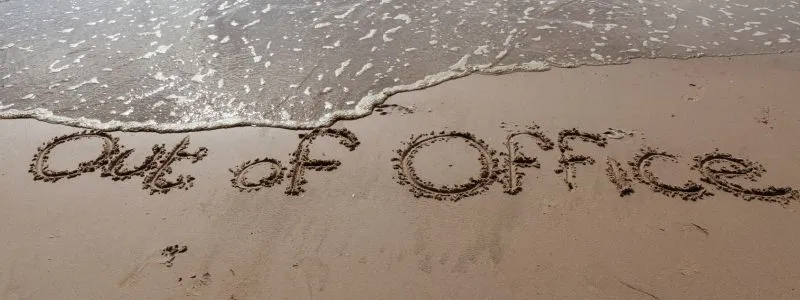
One of the sections in our Change Management Playbook addresses the sustainability of a customer marketing program. Although it seems pretty obvious, the topic is planning for extended time out of the office. Sometimes it seems like you’re not away from work enough; maybe more likely true than not if you work from home, right? The reality is that there are plenty of reasons to be out-of-office from maternity/paternity leave, to illness, caring for a sick or injured family member, leave-of-absence, vacation, and so on. Frequently your absence is not predictable or avoidable.
You might be tempted to think the program can survive your disappearance for a few days, a week, or even longer. Kudos to you if you’ve bullet-proofed the need for your personal oversight of the program, but you’re likely an exception, not the rule. Our experience, from the vendor side, is that a program can begin to disintegrate surprisingly fast without a proper day-to-day leader. By proper I mean sufficiently passionate, knowledgeable, focused and available. Even if you have a majority of requests being fulfilled on autopilot (i.e., self-service), there are the request outliers; the ever-changing advocate needs related to new initiatives in PR, events, digital, social, content, etc. You know how these can come out of the blue, often without a lot of lead-time? Then there are the left field data or report requests, often from leadership. What about advocate recruiting activities inflight? Presumably the recruiting initiative came as a result of need/demand, and your being out of the office doesn’t change that. You don’t want to be perceived as ghosting a potential advocate when you’re the one who initiated the outreach. Ouch!
When you built your program, do you remember how much time it took to convince salespeople and other stakeholders to trust you? You convinced them they could trust the advocate data, the process, the SLAs. They could trust you to jump in and assist if they had an extraordinary need. You had their back. After all, your goals are the same: revenue growth and retention. Were you to disappear for a day, a week, or even longer, this trust would be in jeopardy. As is the case in any relationship, it’s hard to build back trust when your (internal) customer has been burned. You may never be able to build it back, which really stinks given all the effort you put into getting the program off the ground. When trust collapses then old habits return. As an example, the reference shadow market will be back with a vengeance as soon as salespeople get the sense they’ve lost you as a teammate.
What can you do to safeguard the program reputation you’ve worked so hard to establish?
Like insurance, you hope to never have to employ your backup plan. But you’ll be so happy it’s there when it’s needed, and so will those people who’ve come to depend on you to effectively do their jobs whether it’s salespeople, event managers, demand gen managers or anyone who relies on advocates and their stories.